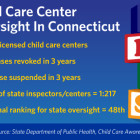Disparities
Housing For People With Intellectual Disabilities Will Be Available By July
|
Connecticut residents with intellectual disabilities could start moving into new apartments and groups homes as early as July now that the state legislature has added $4 million in funding for such placements, a spokeswoman for the state Department of Developmental Services said. In approving a state budget Saturday, the General Assembly agreed to the new funding to move some clients off a waiting list for residential placements, Joan Barnish, the DDS spokeswoman, said. The legislature also added $600,000 to DDS’ budget for 2014-15 for more grants to provide support to families whose children or grandchildren have intellectual or developmental disabilities, she said. Each person’s individual needs will be assessed, so some could receive services soon while others might wait six months or more into the new fiscal year that begins in July 1, she said. The additional funding came as a relief to members of Our Families Can’t Wait, an advocacy group formed in the fall by parents and caregivers of DDS clients.
